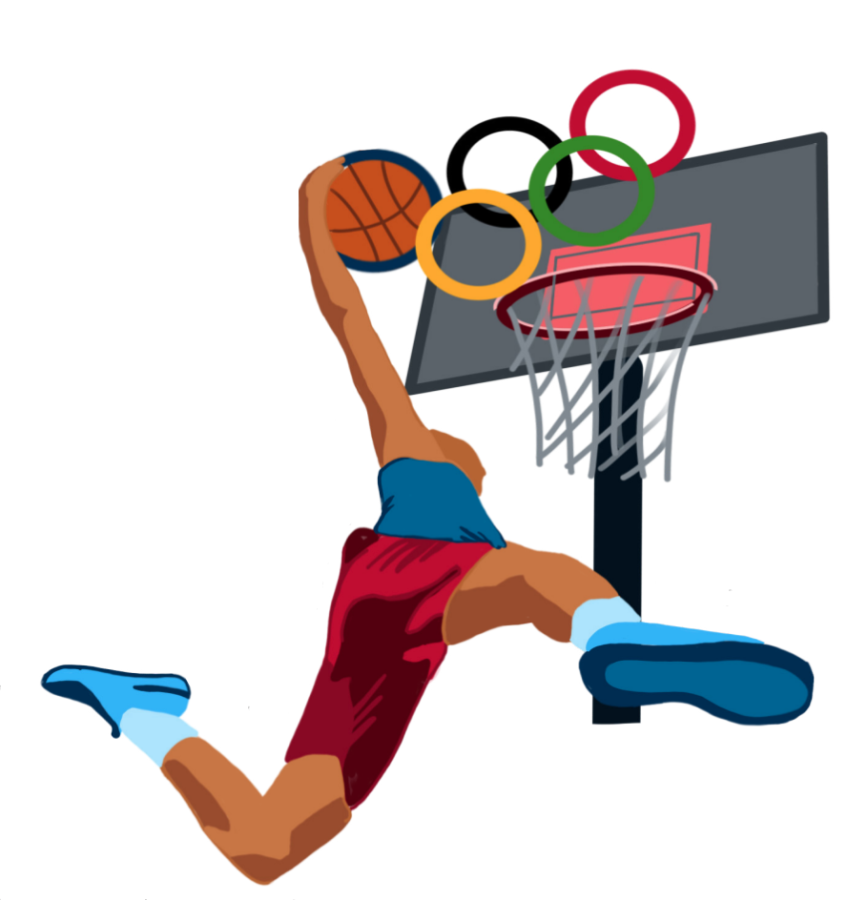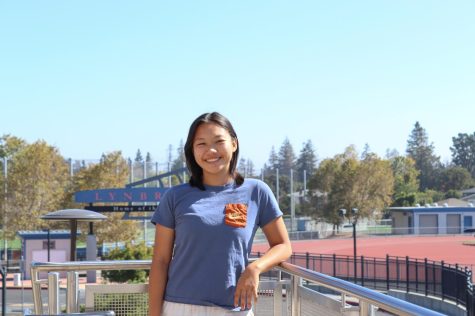American influence through sports
Through sports such as the Olympics and basketball, United States influences the world and increases its soft power.
February 6, 2023
With a little over a minute left in the game and an Olympic gold medal on the line, five blue jerseys storm down the court. One player tosses the ball over his shoulder to a teammate, who finishes the play with a resounding slam dunk. The crowd roars, and the final score is 99-68.
Clyde Drexler and Charles Barkley had added yet another play to a never-ending highlight reel as the United States triumphed over Croatia in the 1992 Olympic men’s basketball championship game. Nicknamed the Dream Team and often deemed the most dominant sports team ever assembled, this U.S. team helped skyrocket global interest in basketball.
The promotion of American sports on the international stage was once largely motivated by goodwill and disseminating American values. However, during the Cold War, sports were transformed into a vessel for diplomacy, a way for countries to legitimize themselves globally, improve their image in other countries and engage in ideological wars.
The U.S. often uses sports to increase and leverage soft power — the ability to persuade other countries sans violence. American athletes are some of the most prominent in the world, and leagues use international games each season to increase the market for American sports abroad.
The Cold War was one of the largest stages for sports diplomacy. In addition to proxy wars and the Space Race, a rivalry in international sports also dominated the political landscape. Both countries used sports to showcase their power, creating state-sponsored programs to foster athletes and promoting their national culture and pastimes through sports.
“Sports are a microcosm in which countries compete and it’s a show of their economic development,” history teacher Luca Signore said. “During the Cold War, the U.S. and Soviet Union were competing in everything, whether it was going to the moon first or winning in hockey.”
Olympic boycotts were used by both sides to condemn the other. After the Soviet Union invaded Afghanistan in 1979, the U.S. led one of the largest boycotts, encouraging more than 60 countries to not participate in the 1980 Moscow games. In response, the USSR and their allies refused to come to the 1984 Los Angeles Olympics.
On the field, clashes between the two countries gained lots of attention, with the Soviets beating the previously undefeated U.S. basketball team in 1972. The “Miracle on Ice” also shocked millions when a young U.S. ice hockey team beat the heavily favored Soviet Union. Despite the conflicts of the Olympics, it can also spark global unity.
“When you see the diversity of people running in an Olympic race, that’s about as humanizing as you will get and an even playing field,” said Government teacher and varsity boys basketball coach Jeff Bale. “We see people coming together. Unfortunately, these things will always be marred with politics.”
Later, dominant American sports teams like the Dream Team would cement the dissolution of the Soviet Union. Ever since, the State Department has collaborated with the NBA to promote American values and aid with foreign relations. The Clinton administration initiated the Sports Visitor Program, which brought non-elite athletes and coaches to the U.S., as well as the Sports Envoy Program that sent American coaches and athletes abroad to teach sports and values. Such initiatives helped expose the world to American culture.
“My cousins in India wake up in the middle of the night to watch Warriors games,” senior and varsity girls basketball captain Navya Anand said. “There’s definitely a lot of hype generated around American professional sports.”
In an effort to ease Cuban-American relations, the NBA and FIBA jointly organized a camp in 2015 to bridge cultures through what the NBA described as the “common language of sports.” Since then, the U.S. has expanded similar programs to countries around the world such as Venezuela and Serbia. But no country reflects American basketball diplomacy like China’s past and present relationship with the sport.
An invitation for ping-pong players paved the way for the first American president to visit China. President Nixon’s visit highlighted the power of sports in bridging different civilizations and cultures. As the NBA leveraged media to promote basketball in China, the Sino-American relationship has only grown — recently, the Internet and social media have fueled Chinese infatuation with the NBA. Sports are more than entertainment; they ultimately have the political power to shift and influence international relationships.
“Mutual interests and shared goals are the best things that can come out of these international sports,” Bale said.





























































